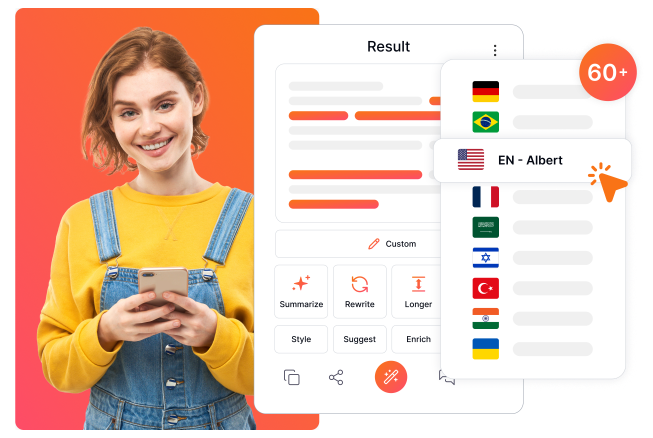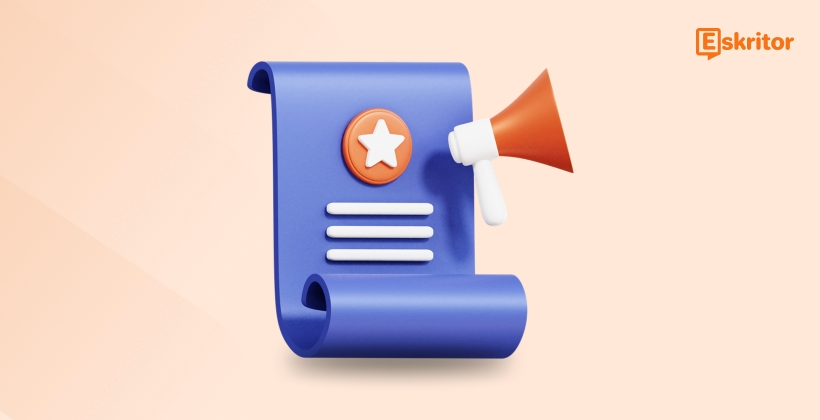Artificial intelligence (AI) publishing technology has evolved rapidly in the last decade, reshaping the way we produce and connect to written content. From syntax modification methods to AI-generated novels, the options appear limitless. But wherever precisely is this technology heading? Let's examine the improvements, challenges, and potential future of AI writer.

How AI Publishing Technology Works Nowadays
At their core, AI writing engineering relies on Normal Language Processing (NLP) and machine learning. These technologies enable versions to comprehend, make, and improve individual language. Tools accessible today excel at tasks like:
1. Content Formation
AI has achieved a spot where it could produce total blog threads, social media marketing sayings, and even media articles. Some designs can handle mimicking individual publishing styles so successfully that distinguishing between AI- and human-written material is now increasingly difficult.
2. Grammar and Style Idea
AI-powered writing assistants don't only check always for syntax and punctuation mistakes; additionally they give ideas to boost tone, understanding, and sentence structure, creating complex writing accessible to an extensive audience.
3. Message Analysis
AI can assess the mental tone of a piece, enabling corporations to determine how their communications can resonate with readers. That is especially of use in advertising and customer interaction.
The Recent Tendencies in AI Publishing Technology
Many developments are surrounding the next phase of AI-powered writing tools:
• Personalization
AI writing technology is increasingly effective at tailoring material to individual preferences. Designs may adapt to a user's publishing design, ensuring the productivity feels authentic.
• Multilingual Abilities
Several AI instruments are increasing their worldwide achieve by giving enhanced translation functions and help for multiple languages.
• Enhanced Research Features
AI instruments today possess the ability to analyze large amounts of knowledge and provide fact-checked, well-researched writing in moments, simplifying the procedure for experts in industries like legislation, financing, and journalism.
What the Future Holds for AI Publishing Technology
1. Improved Creativity
While recent AI is good at generating content, its creativity continues to be limited by styles within its education data. Potential AI is not just estimated to assist but to generate original, informative performs that challenge human imagination.
2. Seamless Effort
Envision an AI that operates along side you in real-time, performing your phrases, doing live edits, and even brainstorming ideas. AI writing instruments may possibly soon become co-authors, allowing imagination to flow uninterrupted.
3. Moral and Accessible Design
With rising problem about plagiarism, misinformation, and error, designers are working toward more translucent AI teaching procedures and moral implementation. Potential resources will more than likely present more comprehensive details and methods to make certain accountability.
Challenges and Considerations
The progress of AI publishing technology isn't without hurdles, including:
• Moral Issues

Who owns content produced by AI? How can we guarantee AI-generated material is not spreading misinformation? These debates stay unresolved.
• Human-AI Stability
Will AI match individual creativity or entirely replace specific jobs? Several authors and musicians be concerned about their relevance in an AI-driven world.
• Supply Split
Not all agencies or regions have equal use of cutting-edge AI tools, raising questions concerning the affect of the engineering on global inequality.
Changing the Way We Write
AI publishing engineering continues to be in their infancy in comparison to their potential. Whether you are a student designing essays, a content marketer targeting certain readers, or perhaps a novelist seeking motivation, AI tools may continue to revolutionize the publishing process. Another decade promises breakthroughs that combination individual ingenuity with device intelligence, developing a potential where writing is more effective, available, and impactful than ever before.
